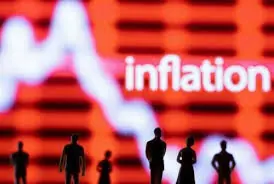Headline Inflation YoY
Headline Inflation YoY
Pakistan’s headline inflation clocked in at 6.2% on a year-on-year (YoY) basis in October 2025, showed Pakistan Bureau of Statistics (PBS) data on Monday, a reading higher than the Ministry of Finance estimate of 5-6%.
The consumer price index (CPI) was recorded at 5.6% in September 2025. The CPI stood at 6.9% in October 2024.
On a month-on-month basis, it increased by 1.8% in October 2025 as compared to an increase of 2.0% in the previous month and an increase of 1.2% in October 2024.
“This is the highest since November 2024,” Optimus Capital Management.
CPI inflation (Urban) increased by 6% on a year-on-year basis in October 2025, as compared to 5.5% in the previous month and 9.3% in October 2024. On a month-on-month basis, it remained stable at 1.5% both in October 2025 and the previous month, compared to an increase of 1.1% in October 2024.
CPI inflation (Rural) increased by 6.6% on a year-on-year basis in October 2025 as compared to an increase of 5.8% in the previous month and 4.2% in October 2024. On a month-on-month basis, it increased by 2.3% in October 2025 as compared to an increase of 2.8% in the previous month and an increase of 1.5% in October 2024.
In its monthly outlook released last week, the Ministry of Finance said the uptick in inflation reading was a temporary phenomenon in the wake of floods, projecting the reading in the range of 5% to 6% for the outgoing month of October 2025.
The ministry said the CPI inflation reading was expected to remain contained within the target in the current fiscal year 2025-26.
“Flood-related supply disruptions and temporary border closures have put upward pressure on prices of a few essential commodities. Inflation is expected to remain 5-6% in October 2025,” the outlook report read.
Pakistan experienced severe flooding as part of an extended monsoon season that began in late June 2025 and intensified through September. The disaster has primarily affected densely populated regions, especially in Punjab.
Earlier, the World Bank stated that flood-related shock to food supply is expected to push inflation above earlier projections, peaking at 7.2% in the fiscal year 2026 before easing to 6.8% in fiscal year 2027 as food supply constraints, commodity and energy prices decline, and the exchange rate remains market-determined.


